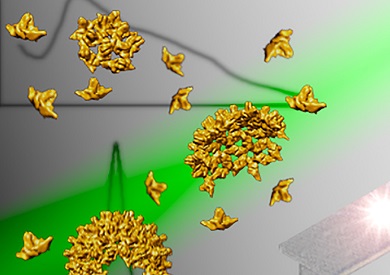COVID-19 Research: New York Scientists Find That Defective Viral Genomes In SARS-CoV-2 Infection Also Contribute To COVID-19 Symptoms And Severity!
COVID-19 Research - Defective Viral Genomes Apr 20, 2023 2 years, 8 months, 1 week, 4 days, 10 hours, 20 minutes ago
COVID-19 Research: A new study by researchers from University of Rochester Medical Center, New York-USA has found that defective viral genomes or DVGs in SARS-CoV-2 infection also contribute to COVID-19 immune responses, symptoms and also disease severity!

Defective viral genomes (DVGs) have been identified in numerous RNA viruses as a significant factor affecting antiviral immune responses and viral pathogenesis. The generation and function of DVGs in SARS-CoV-2 infection, however, remain less explored. This new study delved into DVG generation in SARS-CoV-2 infections and its association with host antiviral immune responses.
The study findings reveal the presence of DVGs in in vitro infections and COVID-19 patient lung tissues, and highlight the critical role of DVGs in modulating host interferon responses, symptom development, and persistent viral infections in SARS-CoV-2.
Defective viral genomes (DVGs) have been recognized as important factors in the biology and pathogenesis of RNA viruses, including SARS-CoV-2. DVGs are generated through nonhomologous recombination and can impact the immune response to viral infections. The generation and function of DVGs in SARS-CoV-2 infection and their contribution to pathogenesis and disease severity however, have not been thoroughly investigated till now.
Understanding the roles of DVGs in SARS-CoV-2 infection may have important implications for antiviral therapies and vaccine development.
In this study, DVG generation in SARS-CoV-2 was investigated using transcriptome sequencing (RNA-seq) data sets from in vitro infections and autopsy lung tissues of COVID-19 patients. Four genomic hot spots were identified for DVG recombination, and RNA secondary structures were suggested to mediate DVG formation.
Functionally, bulk and single-cell RNA-seq analyses indicated the interferon (IFN) stimulation of SARS-CoV-2 DVGs. Applying these criteria to the next-generation sequencing (NGS) data set from a published cohort study, a significantly higher amount and frequency of DVGs were observed in symptomatic patients compared to asymptomatic patients.
Moreover, an exceptionally diverse DVG population was found in one immunosuppressive patient up to 140 days after their first positive COVID-19 test, suggesting for the first time an association between DVGs and persistent viral infections in SARS-CoV-2.
Together, these findings strongly suggest a critical role of DVGs in modulating host IFN responses and symptom development during SARS-CoV-2 infection.
The study findings provide crucial insights into the generation and function of DVGs in SARS-CoV-2 infection. The findings reveal that DVGs are generated ubiquitously during SARS-CoV-2 infections, and their recombination sites cluster in several genomic regions likely determined by RNA secondary structures.
This new
COVID-19 Research also provides the first evidence of IFN stimulation activity of de novo DVGs during natural SARS-CoV-2 infection, as well as the potential role of DVGs in modulating host responses and symptom development in COVID-19 patients.
Furthermore, the observation of persistent
DVGs in an immunosuppressed patient suggests a potential association between DVGs and prolonged viral replication in SARS-CoV-2 infection.
Most significantly, the study highlights the importance of defective viral genomes (DVGs) in SARS-CoV-2 infection and their impact on host immune responses, viral persistence, and clinical outcomes. The findings underscore the need for further research into the mechanisms of DVG generation and their role in modulating host responses and infection outcomes during SARS-CoV-2 infection.
Understanding the roles of DVGs in SARS-CoV-2 pathogenesis could provide vital information for the development of antiviral therapies
The study findings were published in the peer reviewed journal: mBIO
https://journals.asm.org/doi/10.1128/mbio.00250-23
For the latest
COVID-19 Research, keep on logging to Thailand Medical News.
